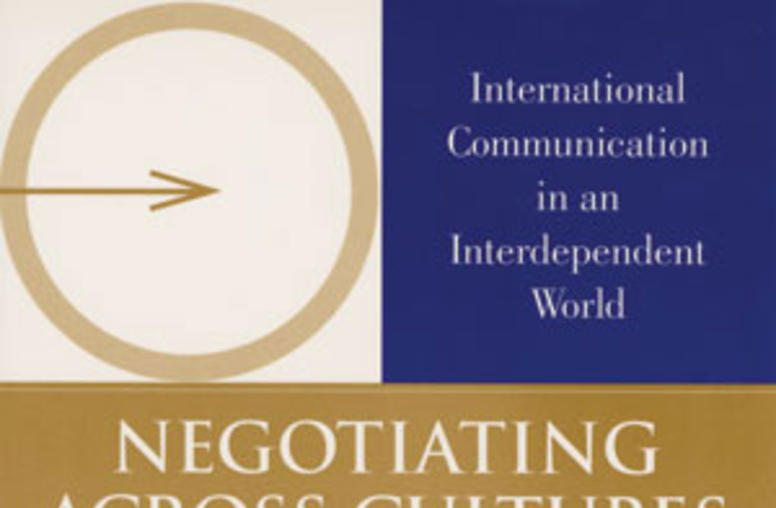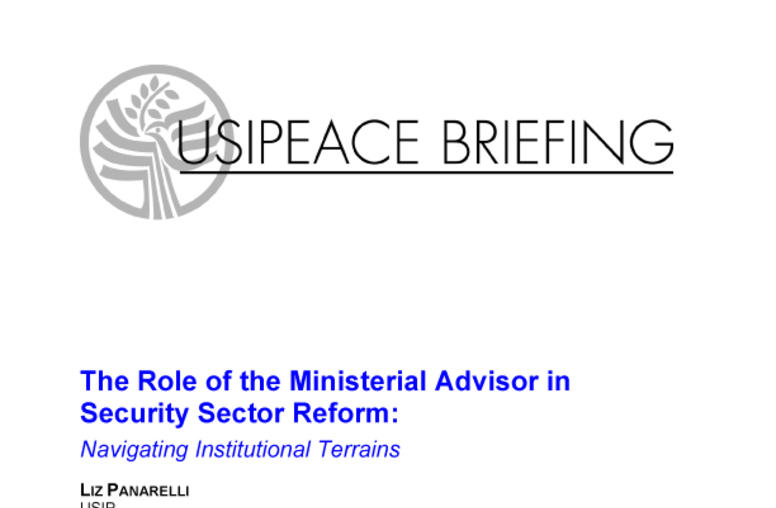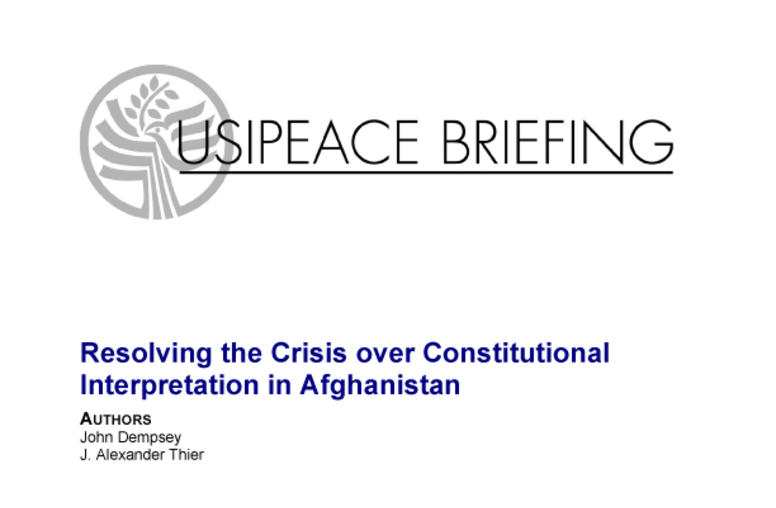Publications
Articles, publications, books, tools and multimedia features from the U.S. Institute of Peace provide the latest news, analysis, research findings, practitioner guides and reports, all related to the conflict zones and issues that are at the center of the Institute’s work to prevent and reduce violent conflict.
On the Issues: Pakistan
President Barack Obama recently met with Pakistan President Asif Ali Zardari and Afghan President Hamid Karzai and pressed the two leaders to do more to combat Taliban and al Qaeda fighters in the border area. Rodney W. Jones, program officer for USIP’s Center for Conflict Analysis and Prevention, assesses Pakistan’s efforts to battle insurgents, the Obama administration’s new approach on Pakistan and Afghanistan, and what USIP is doing to address the problems in the troubled region.
Truth Commission: Solomon Islands
Truth Commission: Truth and Reconciliation Commission Duration: April 29, 2009 (date of inauguration); January 15, 2010 (start of operations) – 2011 (expected). Extensions by the Prime Minister are possible, but limited to one year. Charter: Truth and Reconciliation Commission Act 2008 (No. 5 of 2008) Commissioners: 5 Report: Not yet issued
On the Issues: Sri Lanka
Recognizing the need to promote peace and minority rights in this conflict-ridden country, on March 23rd and 25th the Institute hosted a group of 17 young Sri Lankan professionals as part of a State Department professional exchange program in conjunction with NGO Relief International. Relief International’s Sri Lanka office selected the participants.
Congressional Commission on the Strategic Posture of the United States
The bipartisan commission, facilitated by USIP from 2008-2009, was tasked by Congress to "examine and make recommendations with respect to the long-term strategic posture of the United States." The Commission issued its final report to Congress on May 6, 2009.
On the Issues: North Korea
The White House said North Korea had taken "a serious step in the wrong direction" when the regime expelled international inspectors from the country and announced it would restart its nuclear program. USIP’s John S. Park provides regional context to the latest developments.

Negotiating Across Cultures: International Communication in an Interdependent World
Over the last decade, USIP has produced a definitive series of books on culture and negotiating styles. Described as "profoundly useful," this series is essential reading for diplomats, trade negotiators, policymakers, business leaders, and students. Books have been produced on French, Russian, German, North Korean, Chinese, Japanese, Israeli, Palestinian, and Indian negotiating styles. American, Pakistan, and Iranian negotiating styles are currently under development. USIP also published ...

The Role of the Ministerial Advisor in Security Sector Reform: Navigating Institutional Terrains
International actors in Security Sector Reform (SSR) are increasingly taking on roles as “advisors” to Ministries of Interior, Defense, and Justice. Rather than directly implement changes necessary for SSR, these advisors must persuasively articulate suggestions to their local counterparts. Advisors’ success depends on their ability to convey recommendations in a manner that makes change acceptable to their advisees.
Briefing on Human Rights in Afghanistan
Rule of Law Specialist Scott Worden testified on Capitol Hill on March 26, 2009 on the issue of "Human Rights in Afghanistan." A former adviser to the U.N. Assistance Mission in Afghanistan on human rights and elections issues, Worden helped the U.S. Helsinki Commission examine the current state of human rights in Afghanistan.

Resolving the Crisis over Constitutional Interpretation in Afghanistan
It is essential for political and legal stability in Afghanistan that the current inter-branch stalemate over constitutional dispute resolution be resolved. Any solution must include a determination of which entity will have jurisdiction to undertake constitutional interpretation and in which circumstances. Most importantly, the solution must be achieved through an Afghan-owned process of dialogue and compromise; otherwise the outcome is unlikely to be implemented.
Securing Afghanistan: Getting on Track
New USIP report, "Securing Afghanistan," strengthens case for urgent, sustainable reforms. This first-ever comprehensive analysis of international security assistance shows many donors have not met their Afghan commitments. A lack of focus on long-term sustainability, an inability to map the entirety of donor nations' security assistance programs and the subsequent failure on the part of the international community to understand precisely what is needed in Afghanistan are among the leading re...